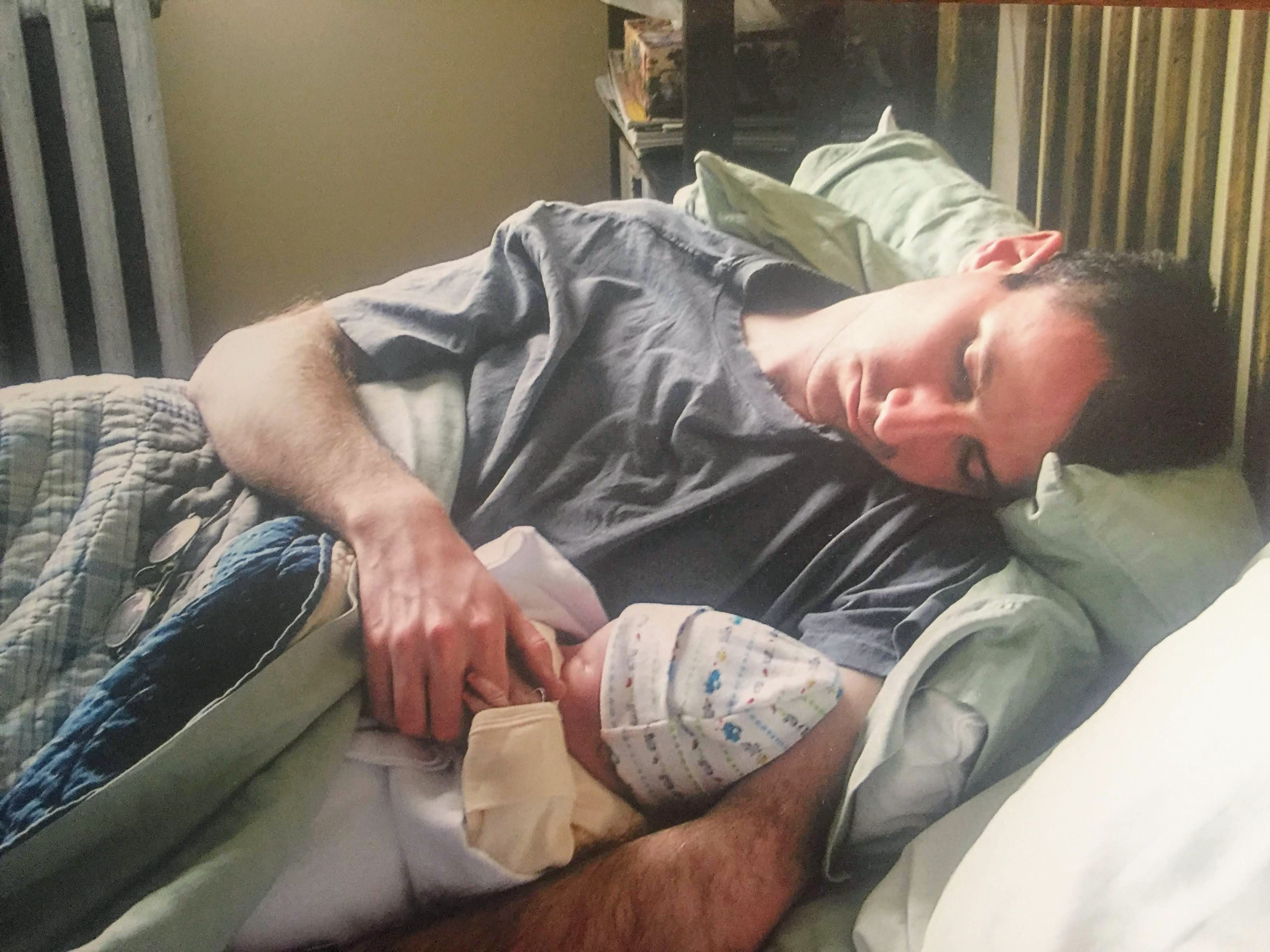Yesterday. Woke up to snow this morning. There’s a particular feeling that comes with it. Part nostalgia, part melancholy, part pleasure. Large white patches of clouds moving southwards across a blue sky. The maple I still see out my back window, on the block behind ours, lost a lot of leaves over the weekend. In the calm and sun of Saturday morning, I watched it rain down yellow leaves like a hand dropping gold coins onto a table. In Sunday’s wind, it gripped the gold coins harder, dropped fewer. But overnight, perhaps it relinquished its grip. Now it is half bare.
By mid-week, temperatures will be in the mid-teens again. One week at a time. There will be cold and dark days. But sometimes the cold will break.
Yesterday was a slow gray morning, then a rush to pick up a Car Share car, a rush to drive to the McMichael Gallery, then a wonderful afternoon looking at stunning art and walking on the trails. We were a little late for our timed ticket, but apart from that everything was smooth and easy and spacious. It was a treat, the first impractical visit we’ve made to a shared indoor space since March. Impractical perhaps, but good for the soul. The Christi Belcourt exhibit was gorgeous, inspiring, rich. Huge paintings of intricate patterns and colours. That sense of wonder and deep connection to the Earth and the universe.
How can I keep cultivating that? How can I keep expressing that? I need to keep making art. It may be small and simple, but it is a practice of awareness, wonder, and thanks.
This morning, I looked out the living room window and saw that the spindly maple in our front yard has lost all its leaves. It happens suddenly each fall. A week ago, even a few days ago, it was gorgeously orange. Each year I am surprised.
Later this morning, when we went out for a walk, the sidewalks were icy, as if there was a mini ice storm during the night. Rain, sudden freeze, the first fall snow. The ice makes me feel helpless, hobbled, nervous of falling. I take tiny penguin shuffling steps. I feel the shame of a child who can’t keep up, although it’s my children who have always been steady on their legs, confident and upright on slippery surfaces. I imagine the frustration if I broke an arm or leg, the inertia, the enclosure, how hard it would be to do my daily tasks. Those two broken arms in childhood made me afraid of ice. Afraid of falling from an upright position onto slippery concrete.
I am attached to movement. It helps me keep my mood and energy regulated, helps me tap into the joy that runs underneath the other, more variable, emotions. But life is full of risks. Sometimes I stay oblivious to them for long periods, sometimes the risk of life rushes into me and floods me.
What is there underneath? The equanimity to keep on going. A wider perspective. Curiousity and hope. Openness to not knowing. A core of strength behind the softness of maintaining a warm welcome to the world around me. Strong back, soft front – I love that line, that instruction. It’s what I aim for. It’s how I want to live.
By late morning, the ice had melted. Life keeps on going, amidst a slow-rolling pandemic, amidst today’s nail-biting historic election south of the border. It’s been a year of mourning what we expected, but also opening to what’s present. Also thriving. Life keeps moving forward, and we step out to meet it. Sometimes with open arms. Sometimes reluctantly, but bravely. Sometimes with tiny steps, shuffling like penguins. Going back is never really an option.




